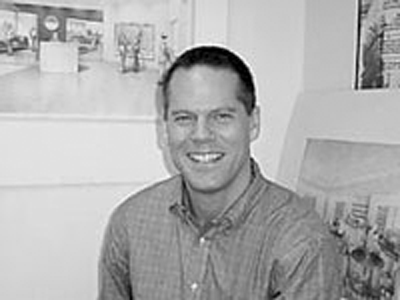Terry Kaelber, group’s executive director, seeks community input on goals of seniors
In an unusual effort at outreach to and inclusion of the gay community, the Bush administration has selected Terry Kaelber, executive director of Services Advocacy for Gay, Lesbian, Bisexual, and Transgender Elders, or SAGE, to be one of the panelists at the fifth White House Council on Aging Conference. Kaelber was one of about a dozen panelists selected to participate in this influential conference that will make policy recommendations intended to guide national aging policy for the next 10 to 15 years. The conference will convene in December.
SAGE, in an effort, to take a pulse of the LGBT community on issues of concern regarding aging and to provide Kaelber with a concrete list of specific policy recommendations for the conference, held a town hall meeting on September 28 at the LGBT Community Center in Manhattan.
Rebecca Hoffman, SAGE’s community organizing coordinator, facilitated the event. Kaelber, who had planned to lead the discussion, had a family emergency and was unable to attend.
“Many of the concerns of the LGBT community about aging are the same as the straight community,” Hoffman told the audience in her opening remarks. “We just have extra concerns due to discriminatory policies.”
To illustrate the impact of that discrimination, Hoffman cited statistics that LGBT seniors are fives times more likely to access government services than non-LGBT seniors. In addition, she pointed out, LGBT seniors are more likely not to have family support, often making old age a more isolated phase of life for them.
Turning the discussion over to the audience of about 30, Hoffman asked them, “What kind of policies would you want to come out of the White House Council on Aging Conference?” and then asked, “What is a good way to grow old?”
Audience members were in agreement that the best way to grow old is have access to user-friendly information that can help them make decisions about matters such as prescription drugs, an area on which many in the audience said they did not have the enough information to make good, informed decisions. A number of people specifically mentioned the introduction of Part D, the Medicare prescription drug benefit scheduled to go into effect later this year, which has left many seniors baffled as they sift through paperwork and government bureaucracy trying to make sense of a program that leaves even seasoned policy wonks puzzled.
While the format of the evening centered on audience participation, panelists, including Amber Hollibaugh of the National Gay and Lesbian Task Force, presented perspectives on issues impacting LGBT seniors such as Social Security.
“They myth is that we are rich women, and this is often not the case,” said Hollibaugh, in explaining her opposition to Social Security privatization. “Essentially, privatizing Social Security is asking you to gamble against the stock market with the money that might be your only retirement money and safety net. LGBT seniors often don’t have partners or family members to support them, making them especially vulnerable to privatizing Social Security.”
The lack of support either from a partner, or other family members, was a prevalent concern voiced throughout the evening. Audience members repeatedly expressed fears of “being found dead alone” in their apartments. Others mentioned their doubts about “getting care that is sensitive” to their needs as LGBT seniors. Some audience members said they believed that if they had to go into a nursing home or have live-in care, they would likely be forced to go back into the closet.
LGBT seniors who have partners expressed concern that if they entered a senior care facility they would not be able to live in the same room as their partner, a deeply troubling prospect for them. They said they would like to see the White House conference develop guidelines giving their partnerships the same rights as married couples have when it comes to living arrangements in nursing homes.
Jessica Walker, a panelist from the United Neighborhood Association, spoke to the audience about social isolation, which, according to a recent study, is a particularly acute problem in New York City. Bobbie Sackman, a panelist from the Council on Senior Centers and Services, charged that Republican Mayor Michael “Bloomberg’s housing plan did not even mention the word ‘senior’ in it,” emphasizing the invisibility of seniors, and particularly the LGBT community, in city policies.
Overall, panelists and audience members alike emphasized the hope that, with input from Kaelber, the LGBT community can emerge as a more visible part of the national discussion on aging as a result of the upcoming conference. Whatever the outcome of the December gathering in Washington, it was widely agreed that participation of the community represents a milestone in the development of national aging policy.
As Hoffman put it, “that Kaelber has been named, in this administration, is extraordinary.”
gaycitynews.com
































